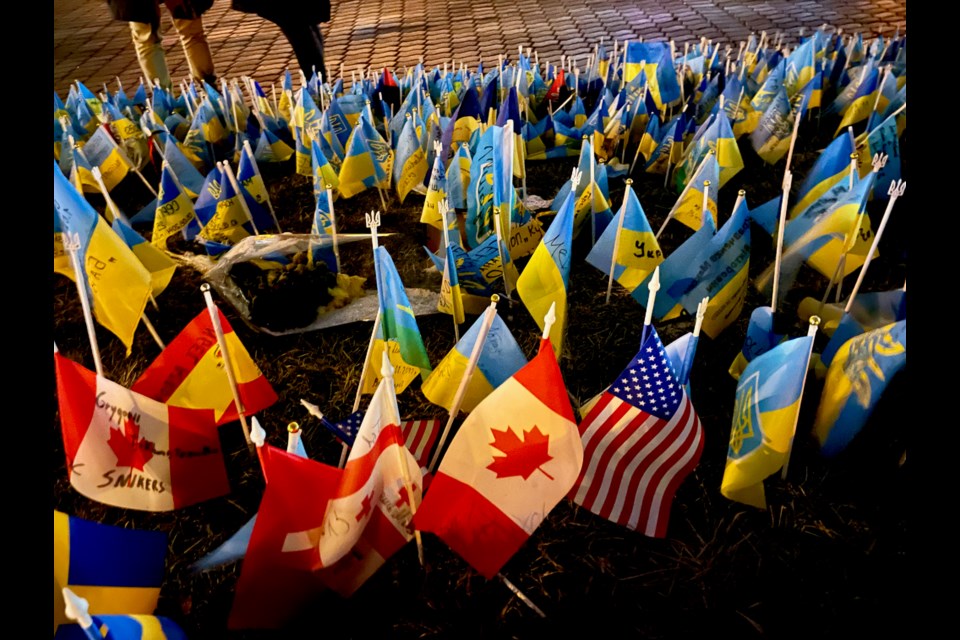Last summer, Rob McTavish and his family welcomed a two Ukrainians — 16-year-old Max and his grandmother — into his home in Coquitlam, shortly after the Russian invasion of Ukraine.
Nearly seven months later, on the one-year anniversary of the invasion, McTavish, program director in Simon Fraser University's Centre for Educational Excellence, reflects on how the new arrivals — now four in all — have become a part of his family's home and their hearts.
Hosting the Ukrainian family
It was a call to answer a community request that led McTavish and his partner, Cher Hill, to open their doors to the refugees back in August.
A former peacekeeper and soldier, McTavish then travelled to Ukraine via Poland to transport life-saving medical supplies. On arrival, he witnessed the devastation wrought by war, and met Max’s parents, and the parents of another teen named Danny, whom he would welcome later into his home in Canada.
Shaken by the injustice of war, McTavish began to plan a return trip in January to transport more life-saving supplies and equipment. In the meantime, together with his partner, he began to convert a room in the main level of their house into a bedroom to welcome Danny into their home.
Around mid-November, Danny finally made his way to the McTavish household, along with Max’s mother, who also safely made it out of the war-torn nation.
Since Danny arrived to Canada through the Canada-Ukraine Authorization for Emergency Travel (CUAET) pathway, McTavish successfully sought legal guardianship of Danny as an unaccompanied minor.
The boys, with the help of their host parents, got integrated in school and have adapted well in their adopted country, but it was not all smooth sailing, McTavish said.
“Just learning the school system … [Danny] takes 17 courses at a time in Ukraine, as opposed to four courses here," he said. "They didn't really understand the notion of report cards and things like that. That's the academic side of it. Then there’s the social side of it. There's the emotional side of integrating into a school when you're 16 years old.”
McTavish said the boys have adapted well so far, but there are challenges.
“It's hard parenting someone else's child because you're in this sort of an in-between world where, 'I'm not a parent, I’m … more than a guardian,'” he said. “It's tough finding those boundaries. I don't want to usurp the parents. I don't want to take on decisions that the parents are already involved in or should be involved in. And so it is a delicate dance.
“But we’ve got that trust. I've got that relationship with both fathers."
“I have talked with Max's father as well about some schooling when we met face to face again, this last trip, I really explained things and [he said] that’s it, I trust you.”
Revisiting the trauma
Although McTavish tries to have the more difficult conversations with the boys about the war, he admits to trying to shield them from it a bit. “It can be traumatic — a sense of guilt of being here, that [their] families are there. And there's nothing that they can do.”
But for him, sometimes those talks are inevitable and important.
It’s not easy to have tough conversations about life with a 16-year-old. That is the unfairness of war, he said, — “the conversation we've been having with Danny is: 'What is your ultimate plan? Do you want to stay here? Or are you just going be here until this is over and then head back?”
“It’s tough… it’s tough to make those life decisions when you are 16 and he's had to grow up quickly.”
McTavish admitted that it is all new for him and his family, especially with their own three kids to look after. However, he explained, it is all a big family now.



